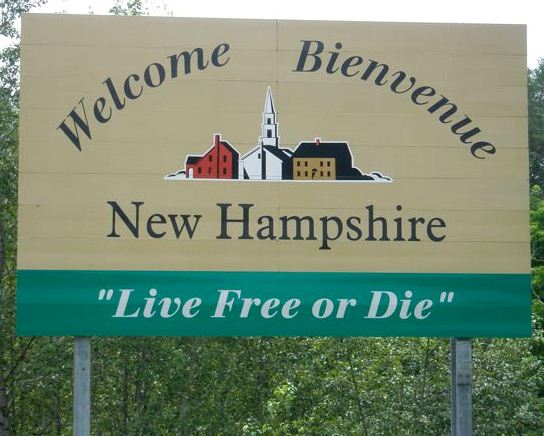Spotlight on New Hampshire: Progress Toward Stronger Anti-Trafficking Laws
Human trafficking in New Hampshire made the news last month when New York Times columnist Nicholas Kristof wrote about Emily, a 15-year-old girl who had run away from home in November. Speaking with Emily’s parents, Kristof asked if they have checked Backpage.com, the leading website for prostitution and sex trafficking in America. He booted up his laptop, and quickly found an ad featuring a photo of Emily. Kristof sent a link to police and a few hours later Emily was rescued at a hotel in Salem, NH, and the perpetrator was arrested.
A good ending, but not how the system should work. Emily could have been found weeks or months earlier if law enforcement officials were better trained to look for trafficking victims, as Kristof was just from his reporting on the issue.
On a more positive note, human trafficking and New Hampshire were also in the news when the state Senate voted last month to strengthen human trafficking laws.
New Hampshire was one of the first states in the nation to pass legislation criminalizing human trafficking. As a result, service providers and law enforcement across the state have been able to assist survivors of sex and labor trafficking by providing survivors safe haven and helping them rebuild their lives.
Unfortunately, after a strong start New Hampshire has fallen behind, and in a recent report by the Polaris Project New Hampshire is ranked lower than every state except South Dakota in the report’s assessment of 10 categories of laws “that are critical to a basic legal framework that combats human trafficking, punishes traffickers and supports survivors.”
The new legislation – SB 317 – passed unanimously and will move through the House soon. SB 317 does several critical things to strengthen the current New Hampshire law to combat human trafficking. If passed, the legislation will:
- Provide protection from criminal prosecution or juvenile delinquency proceedings to children who have been forced into prostitution or other forms of human trafficking;
- Make it a felony to knowingly force a person to engage in labor or sex acts against their will;
- Allow a victim to sue his or her trafficker for the damages caused by the trafficking A victim of human trafficking may suffer psychological, emotional, and physical injuries during his or her enslavement. These injuries can continue to plague the victim even after the trafficking has ended. While many states offer services to victims or allow victims to receive restitution from a convicted trafficker, in many cases it is not enough to compensate the victim for the injuries suffered. Allowing victims to pursue a civil remedy against their traffickers is a way for victims to recover damages for the injuries resulting from being trafficked. A civil remedy not only provides a means of financial compensation for the victim, but also ensures the trafficker is held accountable for the injury he or she caused.
- Provide victims of trafficking who were convicted of a crime to vacate their conviction by petitioning a court. Sex trafficking victims are compelled to engage in acts of commercial sex by their trafficker, which oftentimes results in the victim being arrested, prosecuted, and convicted of prostitution or prostitution-related offenses. As a result, these victims are hindered from getting jobs, safe housing, immigration visas, loans, and continuing education because of the prostitution offenses on their records. A vacating convictions law for sex trafficking victims will provide a mechanism to have convictions removed from the victim’s criminal record so he or she can pursue a future uninhibited by the past; and
- Make prosecution of child sex trafficking easier, by recognizing children cannot consent to commercial sex and eliminates requiring prosecutors to prove that a minor was coerced into sex trafficking; instead a prosecutor need only show a minor was a victim of sex trafficking.
These important changes to New Hampshire’ existing statute will help protect victims of trafficking and assist prosecutors in bringing traffickers to justice.
